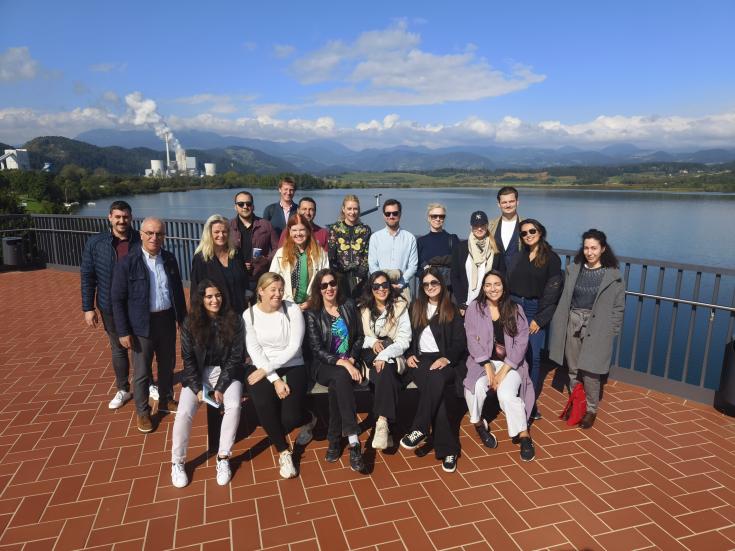Highlights from COMMIT’s First Seminar
COMMIT’s first seminar on 'Strategy Design' in Slovenia’s Savinjsko-Šaleška region, hosted by KSSENA and RA SAŠA, brought together partners - policymakers, experts, academics and stakeholders to discuss key issues facing SMEs. The event focused on four transition topics: policy alignment, financial support, innovation, and stakeholder engagement, all aimed at driving a shift to a low-carbon economy. Read on to learn more!
Policy alignment: navigating complexity and gaps
How can SMEs navigate the maze of policies on their path to sustainability? A major focus of the seminar was on how existing policy frameworks can better support SMEs in their green transition. Presentations highlighted the challenges SMEs face when navigating the complex web of local, regional, and EU-level policies, especially those tied to sustainability and climate action. The European Green Deal, along with its supporting instruments like the Just Transition Mechanism, was recognised as an essential framework to guide this transformation. However, many participants pointed out the significant gaps that remain in translating EU-level climate goals into practical, localised solutions and regulatory support for SMEs.
For example, many businesses struggle with complex, fragmented regulations that are prone to frequent changes, creating an environment of uncertainty. To address this, attendees called for regulatory frameworks that are more stable, clear, and supportive of SMEs. Simplifying administrative processes and ensuring that regulations align more closely with the needs of businesses were also identified as significant steps for fostering a smoother transition.
Financial support: overcoming funding barriers
What’s holding SMEs back from embracing green technologies? For many, the answer is simple: financial constraints. Seminar participants shared insights into the specific obstacles SMEs face in accessing funding, particularly about co-financing and short-term financial support programmes. Many SMEs find it difficult to navigate the often rigid funding structures that fail to account for the realities of their operations.
To address these challenges, the discussions shifted toward the need for more flexible financial tools. Proposals included the introduction of long-term subsidies, low-interest loans, and funding programmes that provide SMEs with the financial flexibility to invest in green technologies over an extended period. Participants also advocated for creating "one-stop" support systems that would help SMEs easily navigate the various funding opportunities available to them. This could significantly reduce the administrative burden and help businesses better understand and access the support they need to transition successfully.
Innovation and knowledge transfer: bridging the gap
How can small businesses in traditional industries leap into the green future and bridge knowledge gaps? To address this, the seminar highlighted the need for stronger connections between academia, government, and SMEs to facilitate knowledge transfer. One proposed solution was to foster closer collaboration through initiatives like internships and subsidised placements, where academic experts could work directly with SMEs to stimulate innovation. This knowledge-sharing approach would empower businesses to stay competitive in the green economy by providing them with the expertise necessary to adopt sustainable practices.
Additionally, seminar participants noted the importance of public support structures such as competency brokers and business support organisations. These entities could help bridge knowledge gaps by connecting SMEs with relevant expertise, resources, and tools. Effective awareness-raising campaigns, coupled with local, regional, and national “one-stop shops,” were also suggested as ways to improve SMEs' understanding of available subsidies and grants, ensuring that businesses are fully aware of the opportunities they can leverage through EU funding programmes.
Stakeholder engagement: framing sustainability as a business opportunity
Why should SMEs care about sustainability? At the seminar, the answer was clear: it’s not just good for the planet – it can also be good for business. By reframing sustainability as a growth opportunity instead of a regulatory burden, participants explored how SMEs can thrive in a greener economy. Discussions underscored how sustainability presents ways for SMEs to increase their innovation potential, secure funding, and improve long-term resilience.
One key point raised was the need for more personalised, hands-on engagement between SMEs and public institutions. Building trust between these two groups was seen as fundamental for encouraging participation in sustainability initiatives. To make these engagements more accessible, it was suggested that workshops and support systems be offered outside of traditional working hours to accommodate the schedules of busy SME owners and managers.

